The Simmele Massacre of Assyrians occurred between August 7th and August 11th, 1933,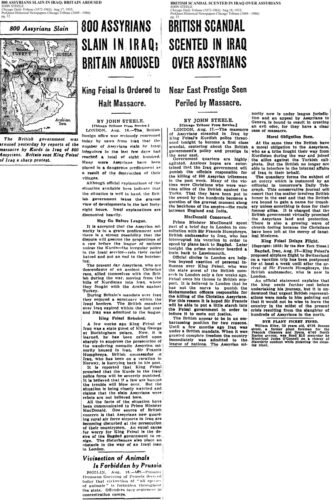 in the town of Simmele, northern Iraq, and its surroundings. It was carried out by the Iraqi Army, led by General Bakir Sidqi, a Kurd, and Kurdish and Arab irregulars. The number of victims has been subsequently determined by researchers to be 3,000, since the massacre was not confined only to the village of Simmele.
in the town of Simmele, northern Iraq, and its surroundings. It was carried out by the Iraqi Army, led by General Bakir Sidqi, a Kurd, and Kurdish and Arab irregulars. The number of victims has been subsequently determined by researchers to be 3,000, since the massacre was not confined only to the village of Simmele.
“The killing of Christian Assyrians transcended tribal, religious, ideological and ethnic barriers as Sunni Arabs, Shia Arabs, Sunni Kurds, Sunni Turkmen, Shia Turkmen, and Yazidis, as well as Monarchists, Islamists, nationalists, royalists, conservatives, Leftists, federalists, and tribalists, were unified in their anti-Assyrian and anti-Christian sentiments. The pogrom was ‘the first genuine expression of national independence in a former Arab province of the Ottoman Empire’ and the killing of Assyrian Christians was seen as a national duty,” according to Kanan Makiya, author of Republic of Fear: the politics of modern Iraq, quoted on Wikipedia.
Because of the Simmele Massacre, August 7th was chosen to become the official Assyrian Martyrs Day. Here is an account of the massacre, as reported by Colonel Stafford of the British Army (edited for length):
On August 8th the Qaimaqam of Zakho appeared with a lorry full of soldiers. No satisfactory answer has yet been given to the question why he should have come with troops into a district that was outside his administration.
He entered the village and told the Assyrians to surrender their rifles, as he feared that fighting might occur between the rebel Assyrians and the Government forces, in which case the people of Simmele would be less likely to be involved if they had no rifles.
Plausibly, but with lies in his heart, he assured them that they would be safe under the protection of the Iraqi flag which flew over the police post for Simmele, being a large village, had a police post of one sergeant and four men. The Assyrians then handed in their arms, which were taken away by the troops.
Government Order to Disarm Assyrians
The Iraqi government ordered the Assyrians to surrender their weapons or face severe punishment. Here is the text of the order (translated by Dr. Samir Jonah).
To the Assyrian Rebels
By this notice, the government declares:
- You have sixty hours starting at 12:00, i.e, midday Saturday, of this August 12, to show your good intentions subject to your surrender of all your weaponry to the closest government offices, military camps or police stations.
- All disciplinary actions by government armed forces will be put on hold during the grace period mentioned above.
- If you do not give in and surrender your weapons to the above mentioned authorities during this grace period, the government armed forces will resume its operations against you with the worst possible outcomes.
- Take advantage of this valuable opportunity and accept the advice to avert your blood shed.
For the government
Lieutenant Governor Mosul State
Khalil Azmi
Next day more troops returned, this time without the Qaimaqam, and disarmed further Assyrians who in the meantime had come in from the surrounding villages. The following day, the 10th, passed comparatively quietly. Nothing happened except that Arabs and Kurds could be seen looting neighboring villages.
They even came in and stripped the communal threshing floors on the outskirts of Simmele, where the cut barley and wheat was stacked in piles, for it was full time of harvest and the villagers were engaged in threshing and winnowing. The unarmed Assyrians could do nothing and the police did not intervene; they explained that they had no orders and that in any case their numbers were insufficient.
It was becoming quite clear now to the Assyrians what was likely to happen. Not only had they seen this looting going on, but they suddenly found they were forbidden to draw water from the village spring, being permitted only to go to the main stream, which was dirty. They knew that the Army had already shot many Assyrians. They had seen their head priest, Sada, taken out of Simmele.
All day they watched the looting Arabs and Kurds. Not one of them dared to move from the neighborhood of the police post, except one or two whose houses were nearby, and who went to and fro on pathetic household tasks such as the making of bread, the last meal that many of them were destined to eat. They were now in a state of deadly fear, and they spent that night in and around the police post, which is built on a small hill.
They now knew only too well the sentiments which the Arabs, and particularly the Arab Army, harboured towards them, and in the small hours of the 11th, when the moon had risen, the watching Assyrians began to observe their Arab neighbours of the village starting away driving their flocks before them. This opened their eyes beyond possibility of error. They realized the trap they had been led into and they knew that they were entirely helpless.
The police sergeant ordered the Assyrians from the outlying villages to return to their homes. When they refused, saying that it was unsafe, he ordered them to leave the police post and go down to the houses in the villages below. They obeyed reluctantly. Some went to the house of Gavriel and his brother Tinan, who kept reassuring them that they would be safe and that the Government would protect them.
As others were going down to the houses they suddenly saw lorries of troops and armoured cars arriving. Looking round to the police post they saw a policeman pulling down the Iraqi flag, which until then had been flying, as it had flown for years, as a symbol of the law and order under which every inhabitant of Iraq could live in safety and security.
Suddenly and without the least warning the troops opened fire upon the defenseless Assyrians. Many fell, including some women had children, and the rest ran into the houses to take cover. Not a soul was to be seen in the streets. The troops well knew that there was not a rifle or revolver left in the village. An officer then drove up in a car and the troops came in. This officer has since been identified as Ismail Abawi Tohalla, who comes of a well known but by no means respectably Mosul family. He shouted to the soldiers not to kill the women and children. These were ordered to come out of the houses and go up to the police post. Many did so.
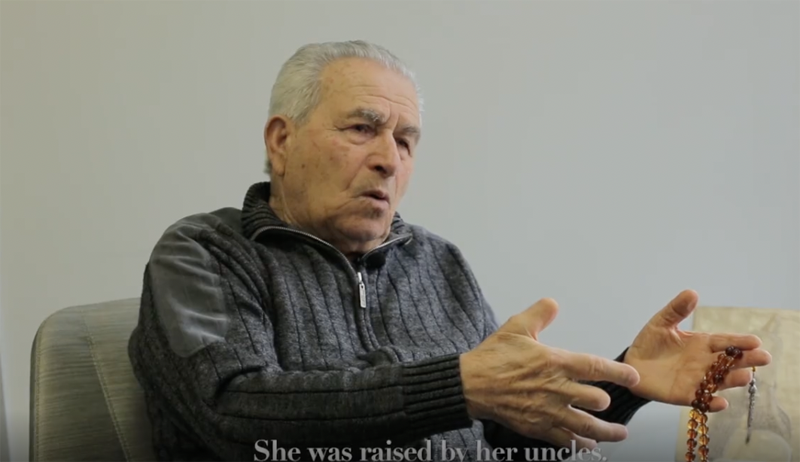
A cold blooded and methodical massacre of all the men in the village then followed, a massacre which for the black treachery in which it was conceived and the callousness with which it was carried out, was as foul a crime as any in the blood stained annals of the Middle East.
The Assyrians had no fight left in them, partly because of the state of mind to which the events of the past week had reduced them, largely because they were disarmed. Had they been armed it seems certain that Ismail Abawi Tohalla and his bravos would have hesitated to take them on in fair fight. Having disarmed them, they proceeded with the massacre according to plan. This took some time. Not that there was any hurry, for the troops had the whole day ahead of them.
Their opponents were helpless and there was no chance of any interference from any quarter whatsoever. Machine gunners set up their guns outside the windows of the houses in which the Assyrians had taken refuge, and having trained them on the terror stricken wretches in the crowded rooms, fired among them until not a man was left standing in the shambles. In some other instance the blood lust of the troops took a slightly more active form, and men were dragged out and shot or bludgeoned to death and their bodies thrown on a pile of dead.
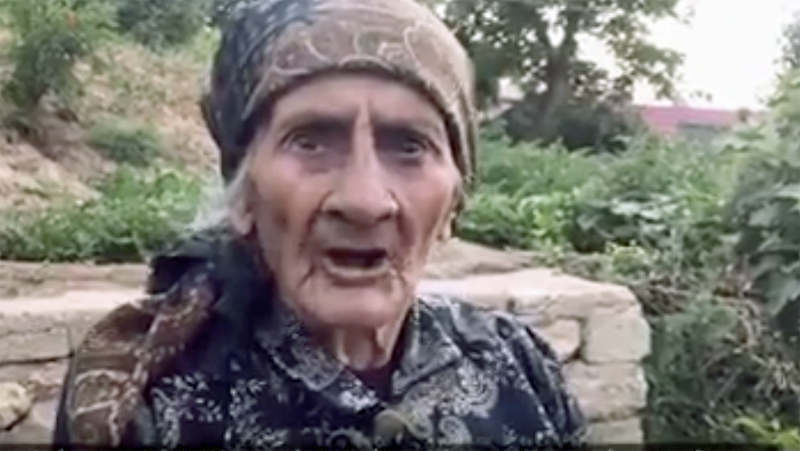
A priest named Ismail who had taken refuge in the police post was driven out by the police, a rope was tied round his neck and he was kicked down the steps and dragged away by the troops, who shot him, afterwards throwing his body on the steadily growing heap of corpses.
Whilst this organized slaughter was going on, the police sergeant, who had from the beginning taken a leading part in the diabolical plot, ordered the Assyrian women to clean up the blood from the neighborhood of the police post. The women complied, but only for a time. Suddenly they rebelled against this inhuman order and told the police sergeant to turn the machine guns on them as they would rather die. The soldiers then took the men that remained down to a ditch and went on killing until every man was dead. It was then discovered that a few men had taken refuge among the women and that some of them had hastily got into women’s clothes. These were rounded up and murdered.
They went off to Aloka for their midday meal and afternoon siesta. As soon as the troops had gone, the tribes, who had been interested spectators, came in and completed the looting of the houses which the soldiers had commenced. The tribes had taken no part whatever in the massacre, but as the Army were equipped with modern machine guns and had no opposition, there was of course no need for any help.
Later in the evening the troops came back, for the police sergeant had reported by telephone that a number of Assyrian men had appeared at the police post and taken refuge there. These were hunted out and killed. The shooting went on until about sunset. In the meantime the other houses in the village were crowded with weeping, terror stricken women and small children. Few of them had any meal that night or for the next few days, for what grain there was in the village had been removed by the Kurds, who had also gone round the houses removing cookery utensils, bedding, and in some cases even the roof beams.
Next morning the women, already distracted beyond all reason, had a further shock when they saw the Army returning, for they did not know what this might portend. The Army, however, had merely come back to bury the dead. The bodies were collected and placed in a shallow ditch. It must be remembered that the month was August with a daily sun maximum of 160 degrees Fahrenheit!
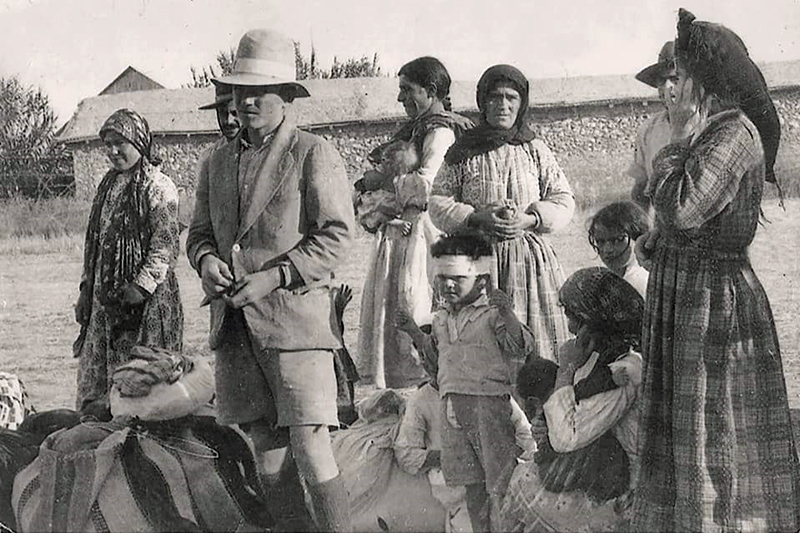
According to the military report 305 men, four women, and six children were buried. Many of the killed were little more than half grown boys. Some other twenty women and children were wounded. I myself saw later one child who had been shot in both wrists as he was being held in the arms of his father who was killed.
That night and the subsequent night some of the women were raped by the police sergeant and the soldiers. Doing everything possible to minimize what had happened, the Arabs have stated that no such incidents occurred. This is a lie. All that can be said is that throughout these terrible days there were fewer outrages on women than would have been expected. It was also everywhere stated at the time that this massacre was the work of the tribes and the irregular police. This, too, is a lie. It was the work of the Iraqi Army, disciplined troops under the direct command of their officers, the troops responsible for practically all the killing being the motor machine gun detachments, while other troops who were passing the village throughout the day did nothing to stop what was going on.
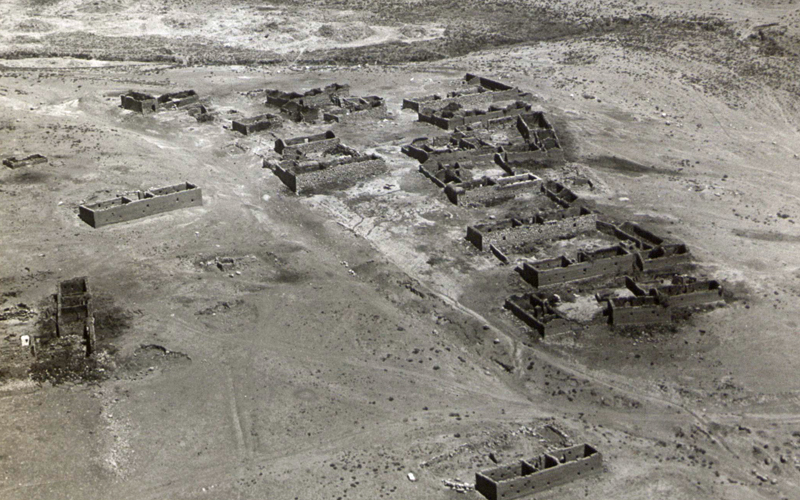
Bekir Sidqi himself, who was to be acclaimed by the Baghdad mob as a conquering hero, and what was even worse was later decorated and promoted by the Iraqi Government, was not in Simmele but spent that day in Mosul, though there is no question but that he planned the whole affair. Indeed, it was subsequently admitted that the Army, had it not been prevented, had intended to carry out a similar massacre of Alqosh, and that he reports that Assyrian rebels had entered that village had been deliberately spread about to afford an excuse.
The burial in a shallow ditch, which was carried out most inefficiently, caused the stench under the burning sun to become almost unendurable, and every fly and pestilential insect for miles around was drawn to the village. In this unspeakable atmosphere there lived for six days one thousand terrified women and children who had seen all their male relations killed before their eyes.
All they had to eat was a few dried water melon seeds and they had scanty water. Even at night they had little sleep, for they did not know what might be coming next, and their dreadful experiences let them to put little trust in the protestations of the police that they were quite safe and that nothing more would happen. A little bread was sent from Dohuk, but nothing on an adequate scale was done until Hikmet Beg Suleiman himself on the 15th arrived in the village and was overcome by what he saw. As soon as he returned doctors and sanitary men were sent to Simmele, and the bodies were decently and properly re interred.
When I visited Simmele myself with Major Thomason on August 17th few traces could be seen of what had occurred, but the sight of the women and children is one which I shall never forget and I spent more than three years in the trenches in France! That day the women and children were removed to Dohouk, and thence, as there was no proper accommodation, to Mosul, where they were placed under canvas in a camp, which will be described later. Every effort was made to hush up what had occurred and a censorship for a time imposed on out going letters.
It was soon seen, however, that the killing could not be kept secret, for the Christians in the north had sent the news abroad, and in the nature of things an affair of this kind was bound to get out. In fact, the details were published in the Beyrouth newspaper before they were known in Mosul. So the Baghdad Government began to admit that there had been a slaughtering of the Assyrians, but they threw the blame on the tribes and the irregular police.
Later this was found to be useless, and Yasin Pasha, the Iraqi delegate to Geneva, had to admit that the excesses had been committed by the regular Army. The Pasha went on to add that the excesses merited and had received severe condemnation. This was untrue. Actually the troops were given triumphal receptions when they returned to Mosul, Kirkuk, and Baghdad.
In Mosul the Crown Price, who is now King of Iraq, at a great military review, decorated with his own hands the colours of the troops who had been engaged against the Assyrians. Bekir Sidqi, Hajji Ramadhan, and the other officers concerned were promoted. Bekir Sidqi on his arrival in Baghdad motored through the crowded streets amidst enthusiastic applause, sitting on the right hand of the Prime Minister. However much Iraqis may deplore what occurred and in private many express a genuine disgust no one of them has yet stated publicly in Iraq that the Army had behaved itself otherwise than well. – Assyrian International News Agency

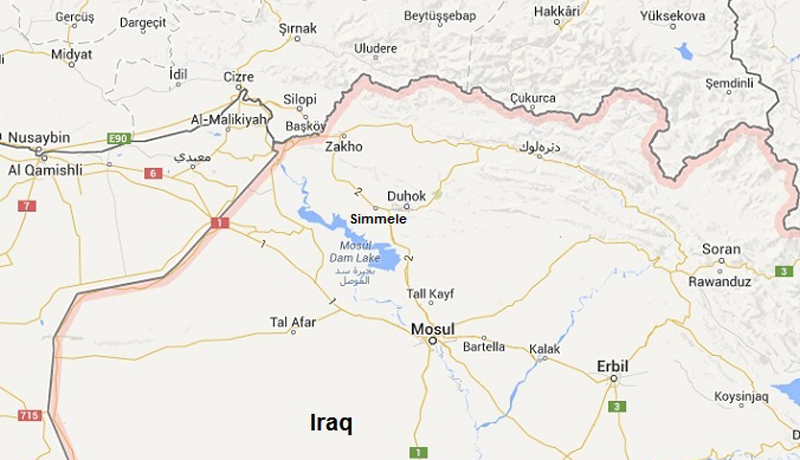

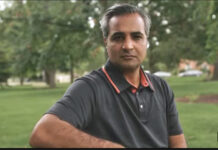

That is the fruit of ‘allah principality,’ that masquerades as Elohim. We need to pray that this great evil of Islam that has reigned for centuries be placed as a footstool beneath the feet of Jesus (Psalm 2, etc).
Comments are closed.